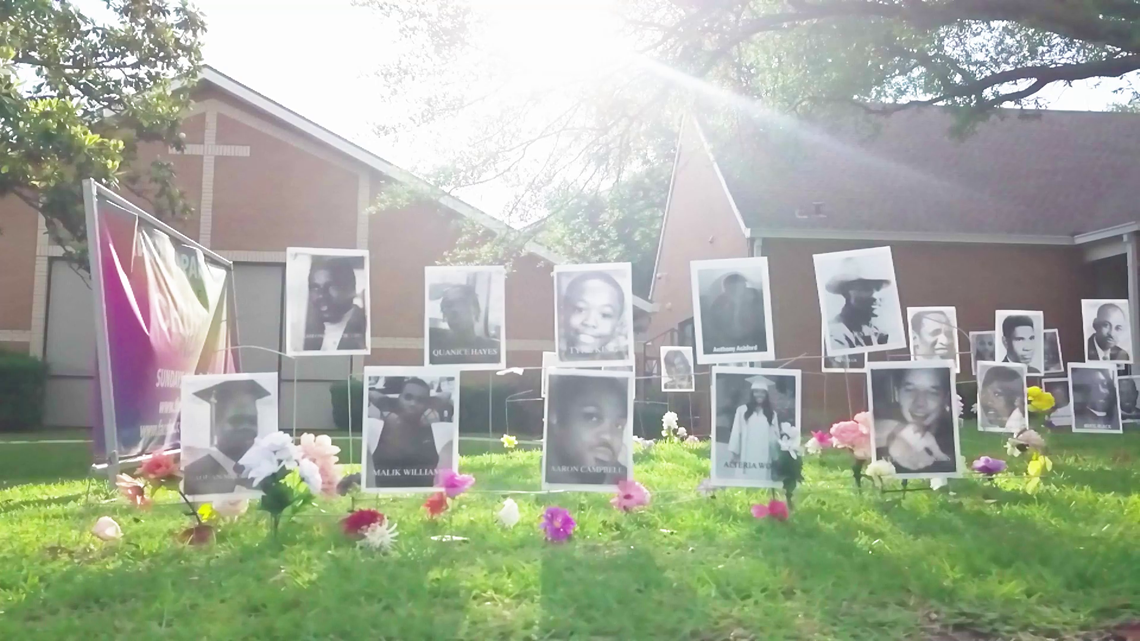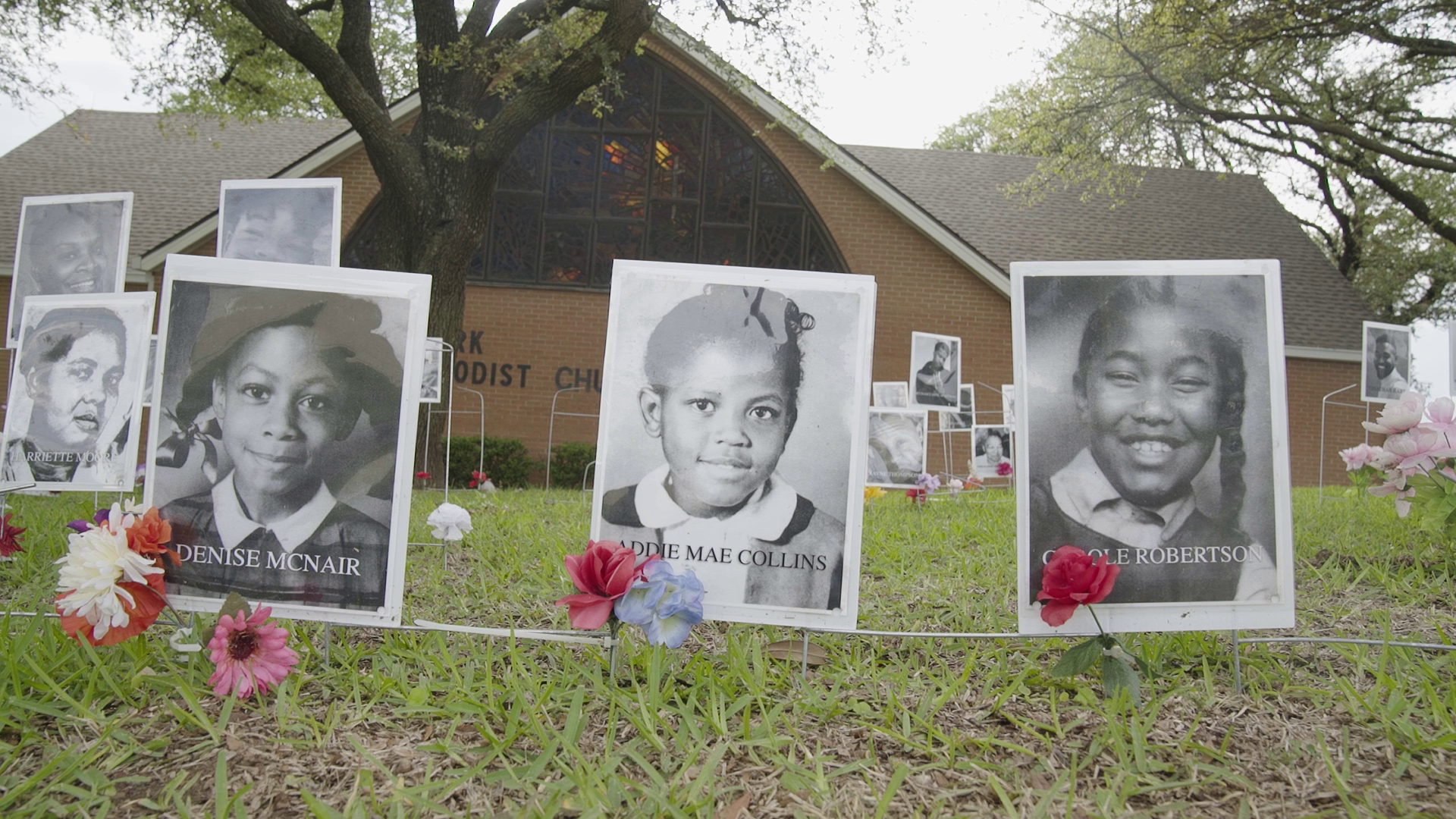DALLAS — There are 190 black-and-white photos staked into the ground in front of Hamilton Park United Methodist Church.
The display has been there for weeks, and the common thread between them is evident: they are all persons of color.
"It's not just one name and one hashtag, you see a whole yard," explained Denita Jones.
The display is called "Say Their Names," and it is a tribute to those who died from racial, gender, and police violence.
Lowry Manders started the group Lake Highland Area Moms and More Against Racism days after George Floyd was killed. Floyd, a Houston native, died in May of 2020 from excessive force by a Minnesota police officer. That officer was later convicted of murder.
Floyd's death set off marches and rallies demanding change to law enforcement policies and the criminal justice system.
"I was living my privileged life at a lake house that weekend," Manders recounted. "I was trying not to watch it very much."
Jones is originally from Mississippi. Actually, across the bridge from where Emmit Till was killed.
"When I look at all those pictures, I see my kids," Jones said. "I see my children in every last one of them."


Sylvia Fernandez had the excruciating task of writing the biographies to many of the people represented on the lawn in front of the church. Fernandez stopped in front of the pictures of three young girls who were victims of the Birmingham Church bombings.
"This one is probably the hardest one I did," Fernandez admitted. "These girls were not even in high school yet ... There are tens of thousands of people we don't even know about."
This moving tribute - 190 reminders of injustice - will be at Hamilton Park United Methodist until Memorial Day weekend. This community of Hamilton Park has its own history as one of the first planned Black communities in Texas. It is where families fled from racial violence and bombings in the 1950s and 1960s.
"They're all smiling in the picture, every one of them," said one passerby, who stopped his vehicle by the road to see the display. "Somebody took a picture of them when they were happy and vibrant and when they were alive."
The group has been denied their display at places. They've been told it is "too controversial" and "too soon." Manders said she will not name any names but said there is nothing political about protesting the "killing of Black bodies."
It is hard not to see that there are several victims from the Dallas-Fort Worth area: Atatiana Jefferson, Botham Jean, Marvin Scott, and Merci Mack.
"When someone says, 'it took George Floyd for me to realize, Oh!' So, you've been ignoring our cries," Jones said.
Jones comes with perspective. She said "Say Their Names" is not anti-white or anti-police.
"My dad was in law enforcement. He never drew a weapon. I know good policing is possible, I've seen it," she said.
Lowry is hoping to spark a connection. Connection sparks conversation, and with conversation comes change, she said.
"It would be easy to ignore it, and go back to white circles and white parties and ignore the news," Lowry said. "As long as they're a part of my community then I will fight for changes for them."
"Say Their Names" heads to Arapaho United Methodist Church in Richardson soon after Memorial Day. A vigil is scheduled outside the church on Tuesday May 25 at 7:00 p.m.

